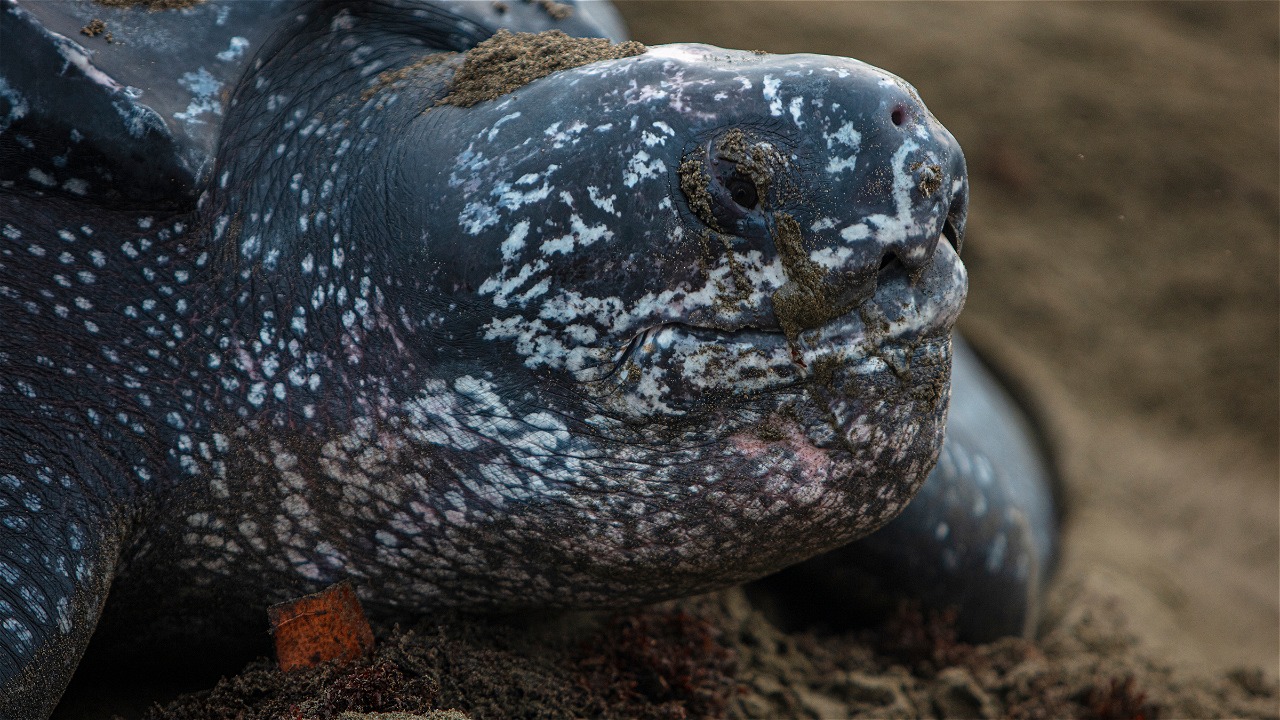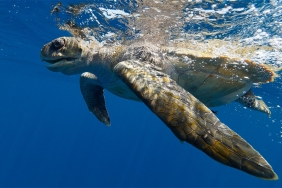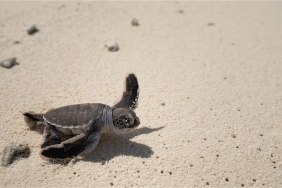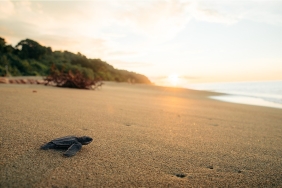VILLAGE REGULATION, WAENIBE VILLAGE ON BURU ISLAND SAYS 'NO' TO SEA TURTLE POACHING
By: Syarif Yulius Hadinata - Marine Species Assistant Inner Banda Arc Subseascape
'Watch, prevent and report', that is the commitment of the Waenibe Village community in the protection of sea turtles at Waenibe Village Turtle Nesting Beach. This protection has been established through Perdes No. 01/2018 on Turtle Protection in Waenibe Village, Fena Leisela Sub-district, Buru Regency on September 17, 2018. The Perdes is a form of community-based village governance that is environmentally sound, by prioritizing the principles of sustainable use of natural resources. Waenibe Village has an area of 8,750 ha and a coastline length of 4.1 km, and is bordered by Waenibe River to Waemasi River.
This Perdes is motivated by the high potential of the North Buru Sea Turtle Nesting Beach, precisely in Fena Leisela Subdistrict, which is home to 3 species of sea turtle nesting out of 4 species nesting in Indonesia. Among them are the leatherback turtle (Dermochelys coriacea)tracking 251 and laying 203 eggs, the Olive Ridley turtle (Lepidochelys olivacea)tracking 237 and laying 211, the green turtle (Chelonia midas)tracking 1 and laying 1 egg (WWF Indonesia Turtle Population Monitoring - Inner Banda Arc Subseascape in 2017).
Andreas Hero Ohoiulun, Project Leader of WWF Indonesia - Inner Banda Arc Subseascape said, "The existence of leatherback turtles in North Buru is a gift from God that the people of Buru should be grateful for. This turtle plays an important role in maintaining the balance of the marine ecosystem and increasing the productivity of the fisheries sector. In addition, leatherback turtles can boost the popularity and become an icon of the tourism sector."
The drafting of the Perdes refers to Permendagri No. 111/2015 on Technical Guidelines for Village Regulations. The scope includes protection of sea turtle species, habitat protection, sanctions and community participation. The Perdes on sea turtle protection has changed the stigma of most Waenibe villagers who used to hunt, trade, and consume sea turtles and eggs, but now become sea turtle protectors. This awareness emerged after the community realized the ecological role of sea turtles to the welfare of the community, especially fishermen.
Elfis Tasidjawa as the Village Head expressed the same thing that he agreed if the development was directed to the tourism sector. He also stated that before this Perdes was formalized, the community had begun not to utilize sea turtles since the beginning of WWF-Indonesia monitoring the sea turtle population involving local residents in 2017. "Turtles must be preserved together in accordance with the Perdes that has been established, if there are people committing violations, there will be reprimands and sanctions as outlined in the Perdes," he said during the discussion of the process of disseminating Perdes information.
Article 8 of the Waenibe Village Turtle Protection Perdes regulates the prohibition for every Waenibe Village community and other village communities not to: (a) hunting turtles; (b) collecting turtle eggs; (c) consuming turtle meat and eggs; (d) trading turtles, turtle eggs and other turtle-derived products; (e) interacting with turtle species if not necessary; (f) dumping household waste into rivers, beaches and the sea; (g) dumping plantation waste into rivers, beaches and the sea; (h) dumping human and animal waste on the beach; (i) poisoning, electrocuting and/or using explosives in the sea and rivers; and (j) burning garbage on the beach at night.
Residents who are aware of sea turtle poaching or illegal trade can report to the Waenibe Village Government to be processed at the village level with fines from Rp 250,000 to Rp 5,000,000 depending on the form of violation committed. Otherwise, it will be processed in accordance with applicable laws with further action by the Maluku Natural Resources Conservation Agency (BKSDA), Sorong Coastal and Marine Resources Management Workshop (LPSPL), and local security forces Polsek and Koramil Air Buaya.
Not only for Waenibe Village but also for other areas in Indonesia, because sea turtles are fully protected by the Indonesian Government based on Law No. 5 of 1990 concerning Conservation of Natural Resources and Ecosystems, and Law No. 45 of 2009 concerning Amendments to Law No. 31 of 2004 concerning Fisheries. Other ways to report are through the Gakkum application provided by the Ministry of Environment and Forestry (KLHK), and Bareskrim Polri's E-Reporting of Protected Animals.




